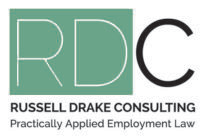Based on information obtained from the Companies Office, Union Organizations represent 14.30% of the total New Zealand workforce. The unions exist to provide employment relations support to their members and to lobby for worker rights and entitlements at a national level. To fulfil these functions, the Union will employ individuals into the role of a Union Organizer with these people often being the ones that have direct face to face interaction with employers in the workplace, particularly in activities such as collective bargaining and representation in disciplinary meetings.
A recent determination of the Employment Relations Authority reinforced that, while being a leading advocate for addressing breaches in employer processes, the union itself is culpable to penalties themselves when they do not implement the same level of process that they would expect other employers too.
Mr Singh was employed by Etu Union as an organizer, and within aspects of this role had involvement in activities associated within preventing and addressing claims of migrant exploitation.
While undertaking these activities Mr Singh was requested to mediate a resolution of a situation which resulted in a complaint being raised against him by the employing party – the complaint being related to sexual harassment amongst other things.
The complaint was lodged with the Etu Union who advised Mr Singh of this and then proceeded to implement an investigation process. This process ultimately led to a formal disciplinary meeting, resulting in the issuing of a preliminary decision prior to the final decision to dismiss being made.
Mr Singh raised a personal grievance against the Union for unjustified action causing disadvantage and unjustifiable dismissal with the matter subsequently being filed in the Employment Relations Authority.
The Authorities investigation process concluded that Etu’s process was deficient in several areas, including:
- Etu did not properly set out all the relevant information for Mr singh to respond to
- Mr Singh did not have a reasonable opportunity to respond to the concerns, particularly for the decision to dismiss him for serious misconduct.
- A ‘fair and reasonable employer’ could not have made the conclusions arrived at based on the information available.
- Etu did not do enough to investigate its concerns about Mr Singh’s behaviour,
- Etu failed to show that the process it carried out with Mr Singh that led to his dismissal was justified.
In summary the Authority concluded that “The overall problem is, as it did not conduct a fair process any substantive conclusion is unlikely to be justified as it did not have all the necessary information to make the decision”.
Mr Singh was therefore successful in his personal grievance claims, although he was unsuccessful in his attempt to be reinstated as the Authority did not deem this to be able to be achieved successful (primary due to Mr Singh’s actions that had led to the dispute).
By way of remedies, Mr Singh was awarded compensation of $18,700 for loss of dignity and harm, and $32,270 lost wages.
This case reinforces two significant principles:
- All employer organisations are subject to the same legal scrutiny, and sanctions by the Employment Relations Authority and,
- Although there may be valid justification to end the employment of an individual, if there are flaws in the process used to do this, the dismissal may be deemed to be unjustified and therefore may result in significant financial remedies being incurred.
If you have any employment process that you are working through that could result in the termination of employment, and you need assistance to get this right, please feel free to contact us directly.
To read the full determination please see here.

